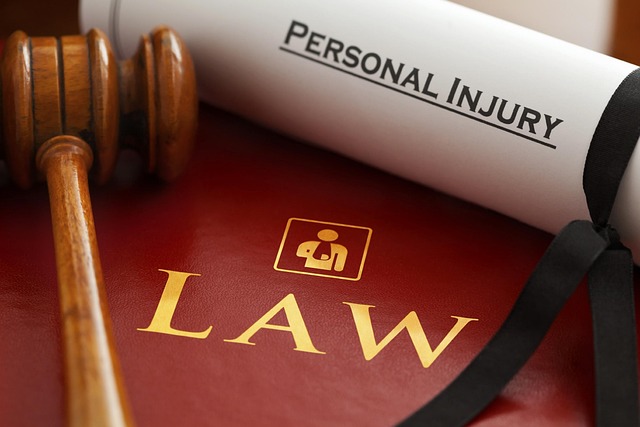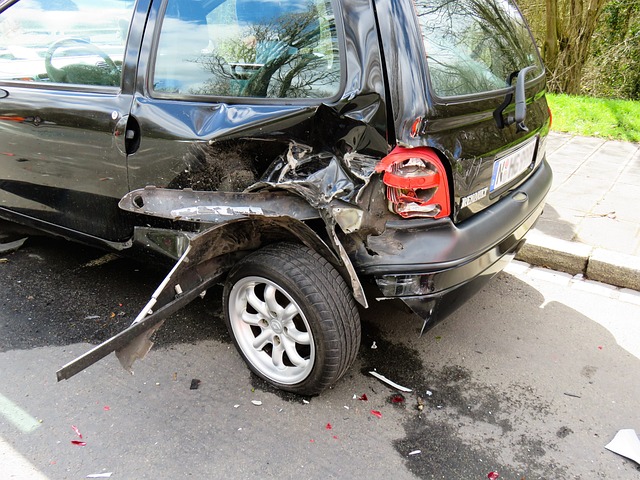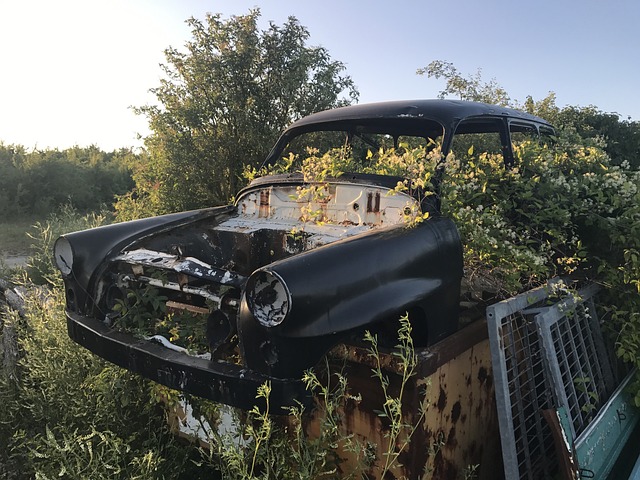Commercial truck accidents can cause severe injuries and financial losses, prompting victims to file Commercial Truck Accident Lawsuits. Liability depends on negligence, regulatory adherence, and maintenance records involving drivers or trucking companies. Victims seek compensation for medical bills, lost wages, pain and suffering, and property damage through personal injury lawsuits. The process includes gathering evidence, consulting experts, filing a complaint, negotiating settlements, and potential litigation. Damages vary based on case circumstances and applicable laws. Real-world case studies offer insights into legal strategies and outcomes, emphasizing driver fatigue, distracted driving, and vehicle maintenance as key causes.
Commercial truck accidents can have devastating consequences, leading many victims to seek justice through lawsuits. Understanding the legal process behind these claims is crucial for anyone involved. This comprehensive guide explores the intricacies of commercial trucking litigation, from identifying common causes of accidents to navigating insurance claims and notable case studies. By delving into these aspects, we aim to equip readers with knowledge about their rights and potential recoveries in Commercial Truck Accident Lawsuits.
- Understanding Commercial Truck Accident Lawsuits: An Overview
- Common Causes of Trucking Accidents
- The Legal Process for Filing a Lawsuit
- Who Can File and What Damages Are Recoverable?
- Navigating Insurance Claims and Settlements
- Case Studies: Notable Commercial Truck Accident Lawsuits
Understanding Commercial Truck Accident Lawsuits: An Overview

Commercial truck accidents can have devastating consequences, leading many victims to seek legal recourse through Commercial Truck Accident Lawsuits. These cases are complex, often involving significant injuries and substantial financial losses. Understanding the legal process is crucial for those affected by such incidents.
When a commercial truck collides with another vehicle or causes harm to a pedestrian, various factors come into play. Liability may rest on the driver, the trucking company, or both, depending on negligence, regulatory compliance, and maintenance records. Victims may pursue compensation for medical expenses, lost wages, pain and suffering, and property damage through personal injury lawsuits. The process involves gathering evidence, consulting experts, and navigating legal procedures to ensure a fair outcome.
Common Causes of Trucking Accidents

Commercial truck accidents can be caused by a variety of factors, and understanding these common causes is essential for those involved in Commercial Truck Accident Lawsuits. One of the primary reasons for collisions is driver fatigue. Long hours on the road and inadequate rest periods can lead to drowsiness, impacting reaction times and decision-making abilities. This is especially concerning given the size and weight of commercial vehicles, which require significant stopping distances.
Another leading cause is distracted driving. With numerous tasks to manage, truckers may engage in activities like using mobile phones, adjusting navigation systems, or eating while behind the wheel, diverting attention from the road. Additionally, poor weather conditions, such as heavy rain or snow, can contribute to accidents due to reduced visibility and slippery roads, making it crucial for drivers to maintain safe speeds and careful control.
The Legal Process for Filing a Lawsuit

When considering a lawsuit after a commercial truck accident, understanding the legal process is crucial. The first step involves gathering evidence, including medical records, police reports, and any available surveillance footage or witness statements. This information is critical in establishing liability and determining the extent of damages.
Once prepared, victims or their representatives file a complaint with the appropriate court, outlining the facts of the case, legal arguments, and sought-after compensation. The defendant (the truck company or driver) will then be served with the documents, prompting a response. Negotiations may follow, aiming to resolve the lawsuit without proceeding to trial. If an agreement cannot be reached, the case advances through pretrial activities, including depositions, expert witness testimony, and potential settlement offers.
Who Can File and What Damages Are Recoverable?

In the event of a commercial truck accident, several parties can file lawsuits to seek compensation for their losses. Typically, individuals who suffer injuries or property damage as a result of such accidents have the right to take legal action. This includes drivers, passengers in other vehicles, and even pedestrians if they were struck by the truck. In cases where negligence or liability on the part of the truck driver, trucking company, or another entity is established, various damages can be recovered.
Damages in Commercial Truck Accident Lawsuits may include medical expenses, lost wages, pain and suffering, and property damage repairs. Punitive damages might also be awarded if the accident was caused by reckless or intentional conduct. It’s important to note that each case is unique, and the recoverable damages will depend on specific circumstances, applicable laws, and evidence presented during litigation.
Navigating Insurance Claims and Settlements

Navigating insurance claims and settlements in Commercial Truck Accident Lawsuits can be a complex process, often shrouded in legal jargon and intricate procedures. After a collision, victims or their representatives must first file a claim with the appropriate insurance company, typically the commercial truck operator’s liability insurer. This involves providing detailed information about the accident, including medical records, repair estimates, and witness statements, to substantiate the claim.
The insurance company will then assess the validity and extent of the claim, which can lead to negotiations for a settlement. In many cases, victims may accept a settlement offer that covers their immediate medical expenses and lost wages. However, if the damages are extensive or there are disputes over liability, the matter might escalate to litigation, requiring legal representation to advocate for the victim’s rights and ensure they receive fair compensation in the form of judgments or awards.
Case Studies: Notable Commercial Truck Accident Lawsuits

In the realm of Commercial Truck Accident Lawsuits, understanding real-world case studies offers invaluable insights into the legal landscape and potential outcomes. One notable example involves a lawsuit against a major trucking company after a collision caused by a fatigued driver. The plaintiffs argued that the company failed to enforce adequate rest periods, leading to a preventable accident with severe consequences. This case study not only underscored the importance of driver fatigue regulations but also resulted in a substantial settlement, setting a precedent for similar future lawsuits.
Another compelling instance involves a lawsuit related to defective brakes on a commercial truck. In this scenario, a trucker’s negligence in maintaining the vehicle led to a catastrophic crash. The lawsuit focused on the manufacturer’s liability and the potential failure of proper maintenance protocols. This case highlights the responsibility of both drivers and manufacturers in ensuring road safety, ultimately leading to stricter enforcement of vehicle inspection regulations.
Commercial Truck Accident Lawsuits are complex yet crucial in holding negligent parties accountable. By understanding the common causes, legal process, and recoverable damages, individuals affected by these accidents can navigate their rights effectively. Case studies highlight significant victories, demonstrating the potential for justice and compensation. If you’ve been involved in a commercial trucking accident, exploring your legal options through experienced attorneys is essential to secure fair outcomes and ensure safety on our roads.
